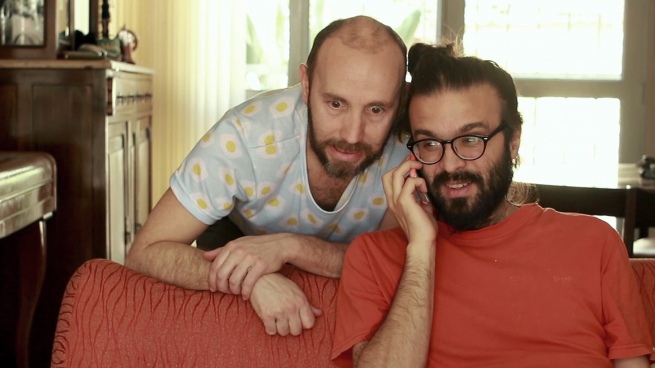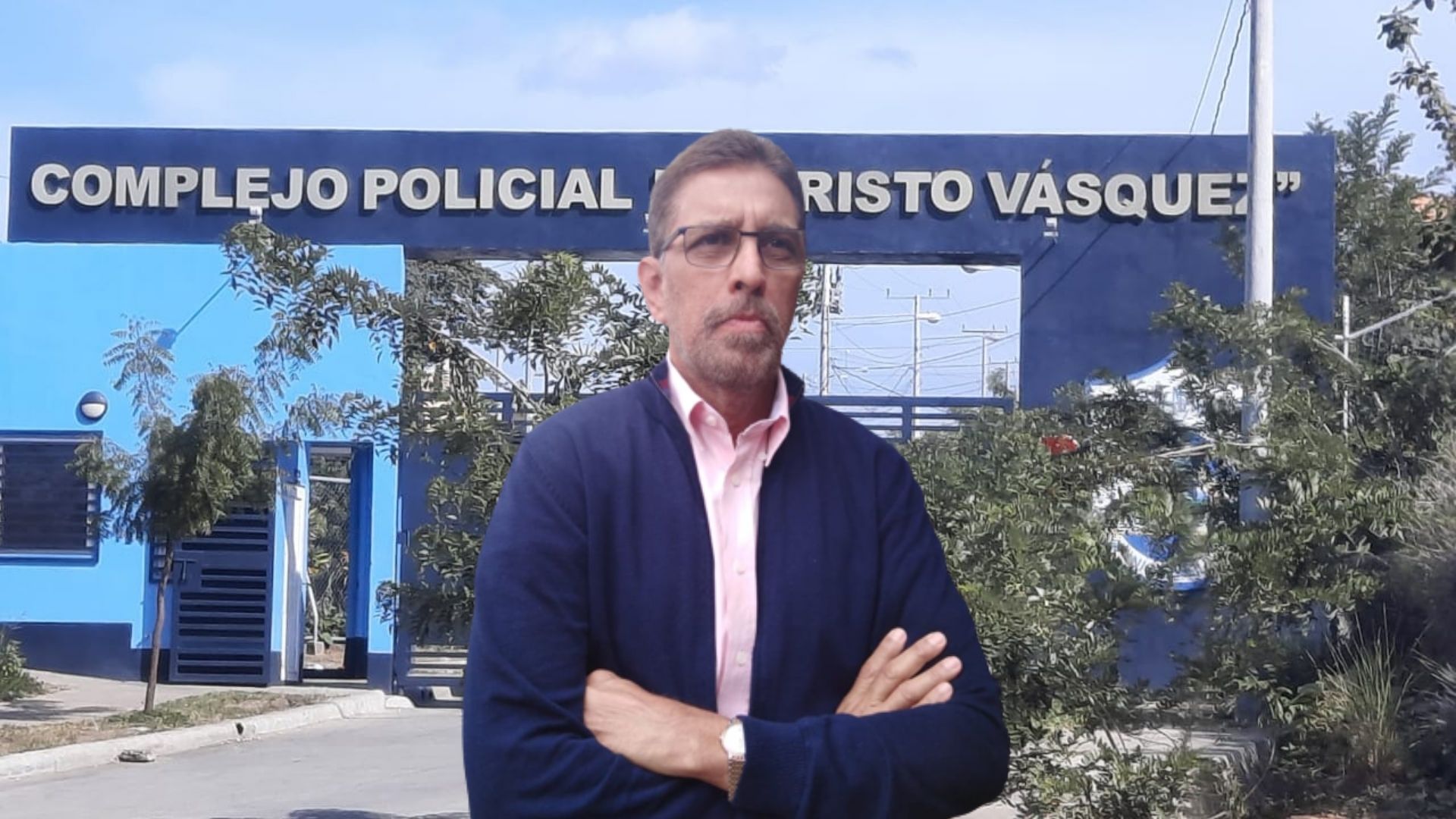the filmmakers Rodrigo Casavalle and Francisco Paez direct and star “A little while”a comedy series that narrates the adventures of two friends who are forced to live together during the pandemic, and which is available for free from today on the UN3 channel of the National University of Tres de Febrero (Untref).
“The series arises from the social experiment to which all humans in the world were subjected, with months of confinement, night and evening anguish, hypochondria and, in our case, artistic activity frozen, slowed down and without prospects”, Casavalle explained in an interview with Télam.
With the performances of figures such as Gaston Pauls, Mirta Busnelli, Martin Garabal, Martin Pugliese and Julian Lucero, the series tells how two childhood friends must live together during the beginning of Preventive and Compulsory Social Isolation due to Covid-19. The detail: they have not seen each other for 20 years and they are no longer those two boys who shared everything in their native Mendoza.
Rodrigo is an actor and went to live in Buenos Aires. Now visiting in the middle of a tour, he is stranded, forced to quarantine due to the coronavirus pandemic and requests asylum for “a little while” from Franco, a musician who lives in the house that belonged to his grandmother.
throughout the 10 chapters of around 15 minutes that make up the series, the plot portrays how the protagonists overcome this coexistence with their different personalities and the uncertainty of the moment.
“It is a story that asks what maturity is, how the soul of a child coexists with the pressures of adulthood, and if people grow at the same time or maturity occurs in unbalanced ways”expressed Páez, about the fiction available on the platform www.un3.tv and on the app for smart TV and mobile devices of the university signal.
“It is also Casavalle added. a story crossed by the bond with the grandmothers who are no longer there. And it also portrays the nexus that the characters have with social networks, exacerbated by the pandemic situation.
“Solidarity between artists was something that was very present in the pandemic and luckily, all the actors, actresses and musicians that we wanted to participate in the series said yes.”Rodrigo Casavalle
“The general framework of the series is real. We are friends, we are artists. Rodri was stranded, I put him up at my grandmother’s house and our friendship was enhanced by living together. And, on the other hand, we decided to exaggerate, invent and fictionalize our characters based on the story”Paez added.
Télam: What was the genesis of the project?
Francisco Páez: We wouldn’t want to make an apology for free time, total inactivity or confinement, but, without a doubt, “Un little time” was born from the mixture of these three variables. To summarize them in one: quarantine. Making the series was the escape valve to all that, in short, the only one we had and that we came up with.
T: How was the process of telling a story that combines the self-referential with fiction?
Rodrigo Casavalle: It was difficult to find the tone with which we wanted to tell the story. We couldn’t define it. It would be like a kind of rustic and little hegemonic “Big Brother”.
FP: At first we left the camera on to see if being ourselves worked and had any appeal, but not only did we not get to be ourselves, but when we saw each other we were embarrassed.
In short, we needed to put our feet on the ground. In other words, lowering that true story to a script and enhancing our own traits so that they work in the plot.
T: Why did you decide to bet on comedy?
RC: We chose to do comedy because it is a genre in which we feel at ease, comfortable, and also it was a time when we needed to laugh at ourselves.
FP: We didn’t have time to experiment with the drama because we were going to make fools of ourselves.
T: How was the choice of the figures that participate in the series?
FP: It was a time when people had a certain willingness to accept entering strange projects and we used that to our advantage.
RC: Solidarity between artists was something that was very present in the pandemic and luckily, all the actors, actresses and musicians that we wanted to participate in the series said yes.
T: Why do they wear superhero costumes?
FP: The story is about two friends who stopped seeing each other when they were kids. The friendship between the two developed in childhood and did not continue to grow from there.
RC: They are those types of friendships that have deep foundations, from the game, from knowing each other without so much social mask. That is why costumes enter history, these childish symbols that represent childhood, strength, achieving the impossible and the possibility of solving things in a fantastic way.
T: Is it easier to address distressing issues such as those presented by the pandemic through humor?
RC: Humor is the vehicle and the language in which topics such as the consequences that networks generate on the characters’ self-esteem, the need to escape anxiety and the search for quick solutions are dealt with.








